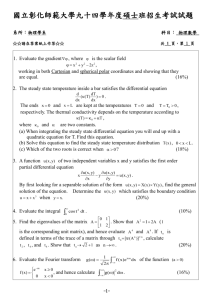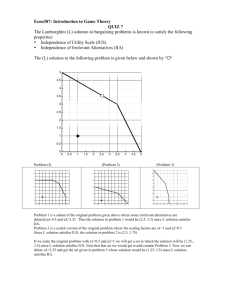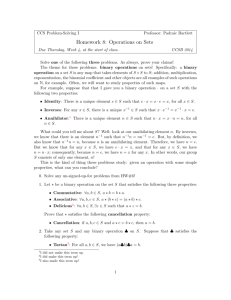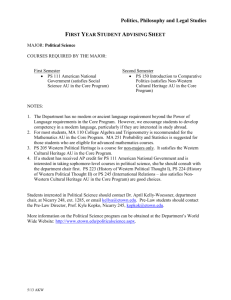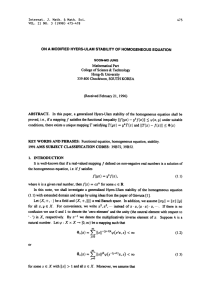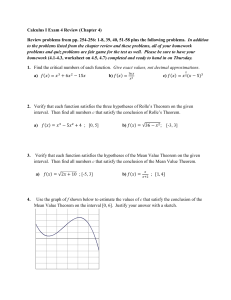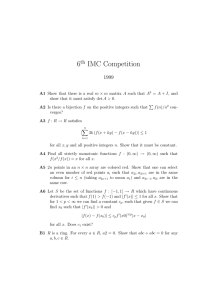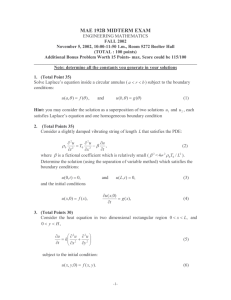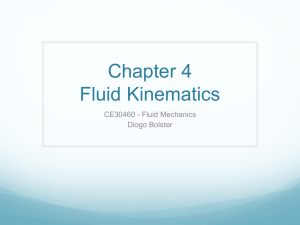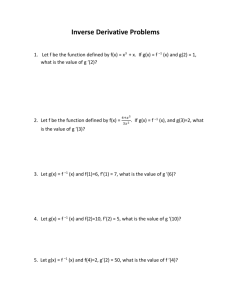PHYSICS 726
advertisement
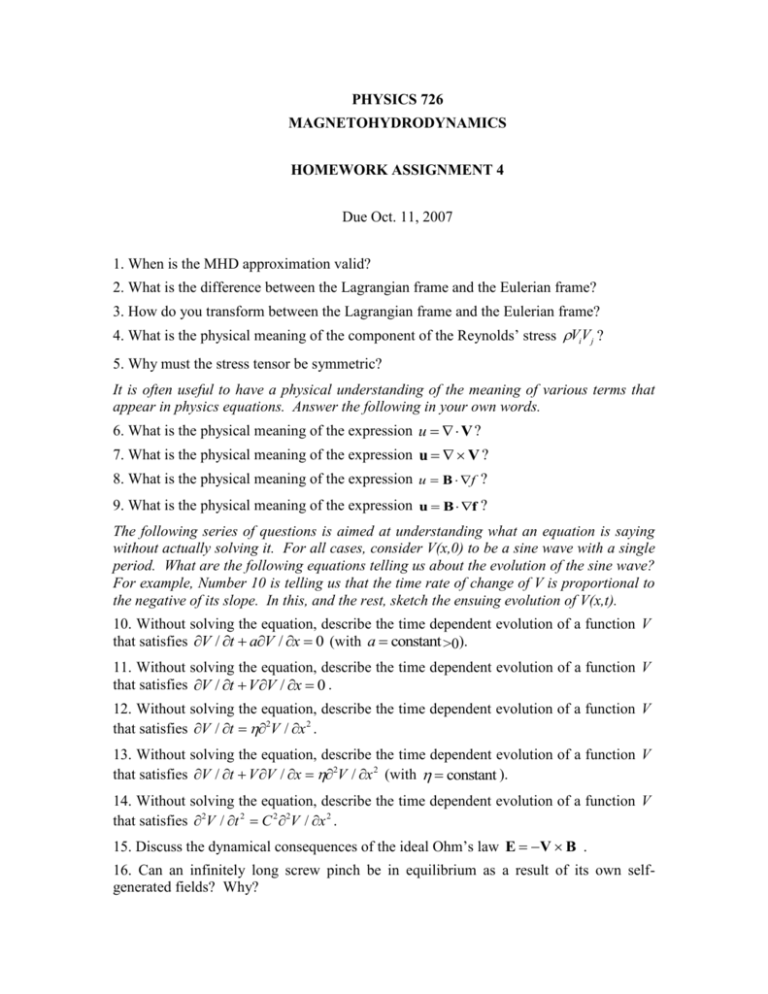
PHYSICS 726 MAGNETOHYDRODYNAMICS HOMEWORK ASSIGNMENT 4 Due Oct. 11, 2007 1. When is the MHD approximation valid? 2. What is the difference between the Lagrangian frame and the Eulerian frame? 3. How do you transform between the Lagrangian frame and the Eulerian frame? 4. What is the physical meaning of the component of the Reynolds’ stress ViVj ? 5. Why must the stress tensor be symmetric? It is often useful to have a physical understanding of the meaning of various terms that appear in physics equations. Answer the following in your own words. 6. What is the physical meaning of the expression u V ? 7. What is the physical meaning of the expression u V ? 8. What is the physical meaning of the expression u B f ? 9. What is the physical meaning of the expression u B f ? The following series of questions is aimed at understanding what an equation is saying without actually solving it. For all cases, consider V(x,0) to be a sine wave with a single period. What are the following equations telling us about the evolution of the sine wave? For example, Number 10 is telling us that the time rate of change of V is proportional to the negative of its slope. In this, and the rest, sketch the ensuing evolution of V(x,t). 10. Without solving the equation, describe the time dependent evolution of a function V that satisfies V / t aV / x 0 (with a constant >0). 11. Without solving the equation, describe the time dependent evolution of a function V that satisfies V / t VV / x 0 . 12. Without solving the equation, describe the time dependent evolution of a function V that satisfies V / t 2V / x 2 . 13. Without solving the equation, describe the time dependent evolution of a function V that satisfies V / t VV / x 2V / x 2 (with constant ). 14. Without solving the equation, describe the time dependent evolution of a function V that satisfies 2V / t 2 C 2 2V / x 2 . 15. Discuss the dynamical consequences of the ideal Ohm’s law E V B . 16. Can an infinitely long screw pinch be in equilibrium as a result of its own selfgenerated fields? Why? 17. Is it possible for an astrophysical plasma be in equilibrium? 18. What is the physical significance of the generalized magnetic helicity? 19. What are the approximations that lead to reduced MHD? 20. In your own words, discuss charge neutrality in MHD. 21. What are the approximations that underlie the 1 ½ dimensional transport model?

